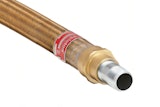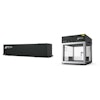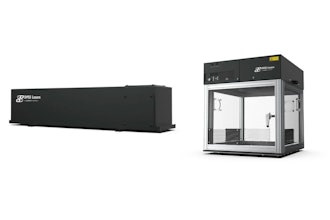How is integrated supply different from traditional horizontal supply chain activity? What are the advantages (and disadvantages) of integrated supply?
The answer to this question requires a question to be asked: “What is the reader’s definition of integrated supply?” In a 10 person conference, I asked each person to write down their definition of integrated supply; I received 13 answers. There is a traditional distributor who lists nine definitions under the heading of, “Integrated Supply.” Go ahead, pick one and we got it!
Traditional horizontal supply chain activity constitutes the existence of industrial distributors buying material from manufacturers that offer a functional discount for the services performed by authorized distributors. There are six major categories of MRO. Distributors exist in two market areas: those who specialize [Electrical, Power Transmission, etc.] and those who are “full line” selling all categories to all markets. There is another grey area where the lines are blurred in that categories overlap in definition, i.e. hand tools could be sold by electrical distributors because electricians use pliers.
These distributors buy and stock the parts they believe clients will use; their clients are industrial consumers of these products. The distributors employ sales people [both inside and out] who have the task of selling as much as they can to the market. They purchase at various discount structures and mark up the parts they sell as much as the markets will bear.
READ MORE: 3 Ways To Gain Full Visibility and Control of Supply Chain Operations
The MRO supply chain activity contains functions that add costs to the products when they are consumed. These activities consist of the manufacturer’s SG&A cost, the distributor’s cost of distribution [both master warehouses and local branch locations…two steps] and the cost incurred by the plant in managing its own MRO store room [a cost not normally recognized as an addition to the cost of the product when it is consumed].
True and optimum “Integrated Supply” is [or should be] a defined process that allows the client to discontinue management of MRO stores and related operations while optimizing return on investment benefits. Properly managed, controlled, and measured, “Integrated Supply” [or Third Party MRO...3PMRO] removes a costly step in the MRO supply chain while the benefits accrue to the end user. The function of supplying parts when needed is the job of MRO management and should be assigned to personnel who are experts in the total MRO supply chain. Just as the company hires expert personnel to provide the knowledge required for a reliable product, the company should hire MRO experts that connect the MRO supply chain to reliable maintenance projects. The experts are successful third party MRO [3PMRO] providers who function on site with no other outside source of revenue or investment distraction. Their core area of expertise is on-site MRO stores management. A company managing its own MRO stores experiences a profit drain that is not recovered in the manufacturing process. It is not the company’s core function and, therefore, should be discontinued just as any other wasteful maintenance function is discarded.
Advantages of integrated supply include:
- The user is relieved of MRO problems and is free to concentrate on core areas of expertise
- Stores management is coordinated with maintenance reliability programs
- The user’s total cost of ownership is reduced to optimum with year-after-year continual improvements
Disadvantages of integrated supply are largely subjective in nature, and, as a result, can defeat the goals. Here are some examples:
- Companies feel they are larger than the provider and can save the fees
- Companies do not want a third party on site; they can “do it better”
- If failure occurs (under the name of some version of integrated supply) it’s because the provider was not committed or lacked knowledge; any future program will not be attempted and potential benefits are not realized.
George Krauter serves as Vice President of Storeroom Solutions, Inc. He brings more than 50 years of experience in establishing cost recovery methods for the MRO supply chain. Contact George at 610-246-6492 or via email at [email protected]. www.StoreroomSolutions.com























